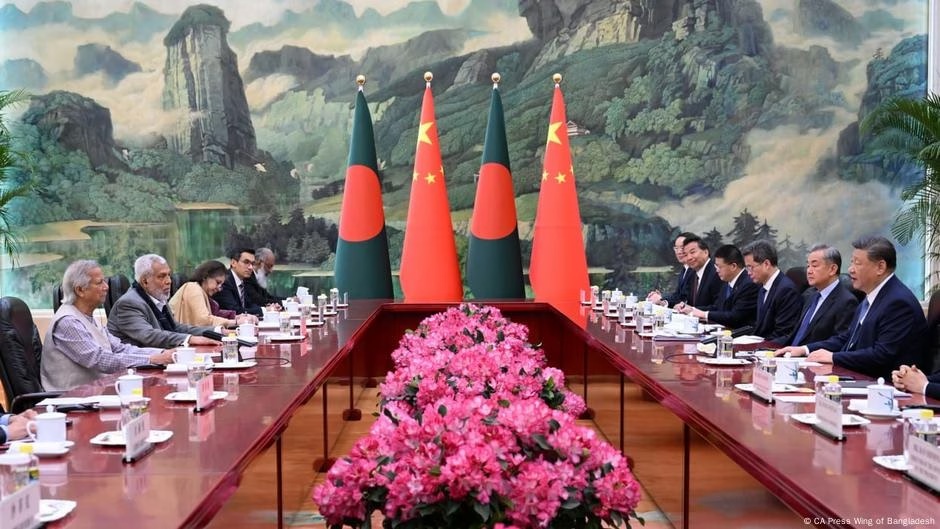Chinese President Xi Jinping met with Muhammad Yunus, the chief adviser to Bangladesh’s interim government, following their meeting last week. President Xi expressed China’s willingness to work alongside Bangladesh to elevate bilateral cooperation to a new level. Yunus became Bangladesh’s chief adviser following the resignation of former leader Sheikh Hasina amid a student-led uprising in August 2024. According to Yunus’ press secretary, Shafiqul Alam, the meeting with President Xi was a grand success. Yunus returned from China with $2.1 billion in Chinese investments, loans, and grants. The agreement includes the establishment of a Chinese Industrial Economic Zone (CIEZ) in Bangladesh, where nearly 30 Chinese companies have pledged $1 billion. China will also provide $400 million to modernize Bangladesh’s second-largest port at Mongla and is considering enhanced cooperation for water resource management. In addition, China renewed its pledge to support Bangladesh in its efforts to repatriate Rohan jqya refugees. Experts say that while this cooperation may reduce Bangladesh’s reliance on other countries, it also risks angering India, as closer ties with China could bring Beijing’s influence closer to India’s border. Other challenges include potential trade deficits and the need for stronger social and environmental standards in Chinese investments. India-Bangladesh relations have soured since Hasina’s resignation, leading Yunus to make his first state visit to China instead of India. India’s response to requests for a bilateral visit remains unpositive, and there are calls for India to extradite Hasina for trial; the Indian government has yet to respond.
Source: https://www.dw.com/en/as-bangladesh-builds-china-ties-india-looks-on/a-72098343?maca=en-rss-en-all-1573-rdf







